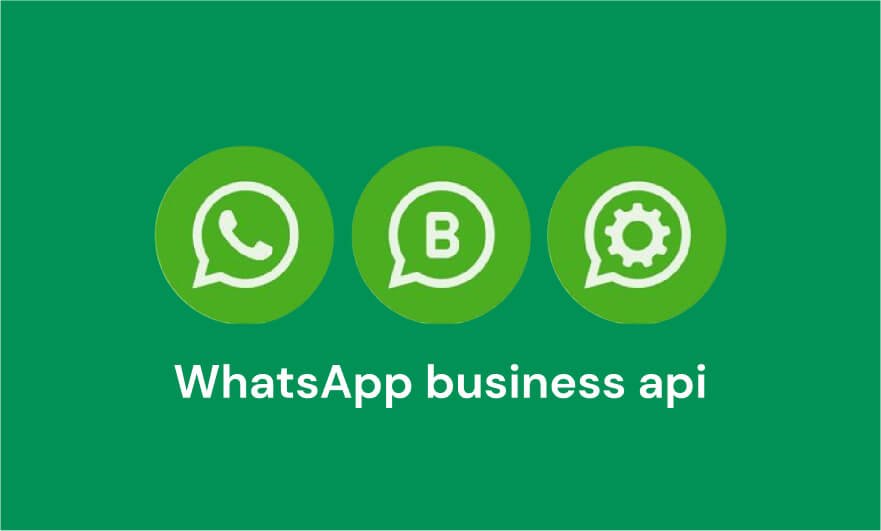In today’s digital era, businesses are constantly seeking effective communication tools to enhance customer engagement and streamline operations. One platform that has emerged as a game-changer is WhatsApp, a messaging app with over two billion users worldwide. To help companies fully leverage its potential, the WhatsApp API for Business offers advanced features that go beyond the standard app, enabling businesses to connect with their customers in a professional, secure, and scalable way.
Unlike the traditional WhatsApp Business app designed for small businesses, the whatsapp api for business is tailored for medium to large companies that require more robust communication capabilities. It allows enterprises to integrate WhatsApp directly into their systems, such as customer relationship management (CRM) tools, marketing automation platforms, and e-commerce websites. This integration ensures seamless customer interactions, quicker response times, and enhanced personalization.
Key Features of WhatsApp API for Business
One of the major benefits of the WhatsApp API is its ability to automate communication. Businesses can set up chatbots to handle frequently asked questions, confirm orders, or provide real-time support. This automation not only saves time but also ensures customers receive instant responses around the clock. Additionally, businesses can send notifications such as order confirmations, shipping updates, reminders, or payment alerts directly through WhatsApp, which is more convenient for customers than email or SMS.
Security is another critical feature. The API provides end-to-end encryption, ensuring that sensitive customer information remains protected. This makes it an ideal tool for industries that handle confidential data, such as banking, healthcare, and e-commerce.
Benefits for Businesses
The WhatsApp API enables businesses to scale their communication without compromising quality. For example, customer service teams can manage multiple conversations simultaneously, ensuring no query goes unanswered. This leads to improved customer satisfaction and loyalty.
Personalization is another key benefit. Businesses can use customer data to send tailored messages, promotions, or product recommendations. Unlike generic mass communication, this targeted approach resonates more effectively with customers, driving higher engagement and conversions.
Moreover, integrating WhatsApp with existing business systems improves operational efficiency. By centralizing customer interactions within a CRM, companies can track conversations, monitor customer behavior, and make data-driven decisions.
Enhancing Customer Trust and Engagement
Customers today value convenience and responsiveness. With WhatsApp API, businesses can meet these expectations by being available on a platform customers already use daily. This builds trust and strengthens the relationship between the brand and its audience.
Furthermore, since messages are delivered directly to customers’ smartphones, engagement rates on WhatsApp are significantly higher compared to email or other channels. This means businesses can achieve better results with their marketing campaigns and customer service efforts.
Use Cases Across Industries
The versatility of WhatsApp API makes it suitable for various industries. Retail businesses can use it for order confirmations and delivery updates. Financial institutions can provide secure transaction alerts. Healthcare providers can send appointment reminders or offer teleconsultation support. Travel companies can deliver booking confirmations and itinerary updates. These use cases demonstrate how WhatsApp API simplifies communication while enhancing customer experiences.
Future of Business Communication with WhatsApp API
As customer expectations continue to evolve, businesses need tools that provide speed, security, and personalization. The WhatsApp API for Business is well-positioned to become a cornerstone of digital communication strategies. Companies that adopt this technology will be able to stay ahead of the competition by offering superior customer interactions and building stronger brand loyalty.
Key Things You Need to Know About WhatsApp API for Business
1. What is WhatsApp Business API?
The WhatsApp Business API is a communication solution designed for medium to large businesses to engage with customers at scale. Unlike the WhatsApp Business App (for small businesses), the API enables automation, bulk messaging, integration with CRM systems, and customer support platforms.
2. Use Cases of WhatsApp API
-
Customer Support: Provide instant, two-way conversations with customers.
-
Notifications & Alerts: Send order updates, payment reminders, booking confirmations, and shipping details.
-
Marketing Campaigns: Share promotional offers, new launches, or event updates (in compliance with WhatsApp policies).
-
Chatbots & Automation: Handle FAQs and routine inquiries automatically.
3. Requirements to Use WhatsApp API
-
Facebook Business Manager Account (Meta Business Account) with verified business information.
-
WhatsApp Business Profile with a display name approved by Meta.
-
Phone Number that is not already registered with the WhatsApp app.
-
WhatsApp Business Solution Provider (BSP) if you are not hosting the API on your own server.
4. Message Categories
There are two main message types supported:
-
User-Initiated Messages (Session Messages): Free-form conversations that occur when a customer messages you. The session lasts 24 hours from the last customer response.
-
Business-Initiated Messages (Template Messages): Pre-approved message templates (by Meta) that businesses use to start conversations outside the 24-hour window, such as reminders or promotions.
5. Pricing and Costs
WhatsApp API pricing depends on:
-
Conversation-based pricing: Charges are applied per 24-hour conversation session, not per message.
-
Country and message category: Rates differ based on the recipient’s country and whether the conversation is user-initiated or business-initiated.
-
BSP charges: If you go through a provider, they may add additional service fees.
6. Compliance and Policies
-
User Consent: Businesses must get opt-in consent before sending messages.
-
Content Rules: No spam, prohibited content, or misleading information is allowed.
-
Template Approval: Marketing or notification templates must be approved by Meta.
Conclusion
The WhatsApp API for Business is more than just a messaging tool—it is a comprehensive communication solution that enables companies to engage with customers effectively, securely, and at scale. By integrating it into their operations, businesses can improve customer service, drive engagement, and achieve long-term growth. For companies seeking to strengthen their outreach in today’s competitive landscape, adopting this powerful tool is a strategic move toward success.
